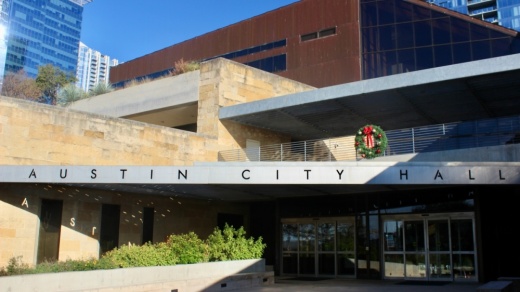In its last meeting of the year, City Council voted unanimously Dec. 20 to approve a preliminary plan for a South Central Waterfront TIRZ covering the area roughly bounded by Lady Bird Lake, East Bouldin Creek and South First Street. Through the TIRZ, up to $280 million in expected future tax revenue gains on properties within that area could be redirected from the city's general fund and used for local improvements.
"The area suffers from inadequate sidewalk and street layout and other factors, and due to its size, location, and physical characteristics, redevelopment will not effectively occur solely through private investment in the foreseeable future," the city said in its TIRZ plan. "Proposed public improvements include new and refurbished roadway and drainage, streetscapes, open spaces—parks, trails [and] plazas—utilities, green infrastructure and reclaimed water."
Under state tax code, a TIRZ can be created only in substandard areas that hurt a city's growth and are not expected to attract new development. Leading up to council's December vote, officials and some community members voiced concern that the lakefront district does not meet those criteria, especially with the expected completion of the 372,000-square-foot RiverSouth development in early 2022 and planning for a new 19-acre mixed-use project off of South Congress Avenue well underway.
"You are required to find that the redevelopment would not occur without the public investment in the reasonably foreseeable future. The development’s already occurring in this area, and in the reasonably foreseeable future it will occur," said Fred Lewis, a local lawyer and lobbyist who co-authored a letter to council last week urging a vote against the plan. "You are basically saying $300 million in infrastructure is better spent here on a property that’s going to be worth $7 billion than on flooding and the other needs in the other parts of the city."
Several council members also said development is in fact likely in the South Central Waterfront, and several doubts about the overall plan were raised before its passage. However, officials said the December vote was scheduled to move the process along rather than make any final decisions, and that deeper discussion is still needed to address lingering questions about the plan.
“We can certainly decide ... early next year whether or not to do a TIRZ at all, and if so, what that TIRZ should look like or include or not include," Mayor Steve Adler said. "In my view, what we need to understand better is the law surrounding the situation where we have land that’s undoubtedly going to develop on the south waterfront, but unless we put in a grid system of roads, it’s not going to develop the way that it best should."
Council also passed the plan with an amendment from District 9 Council Member Kathie Tovo, who represents the TIRZ area, that would make affordable housing a priority in the tax plan. Tovo and other council members stressed the importance of following the city's own policy goal of having 20% of residences within a TIRZ be affordable to those at lower income levels after the topic was initially left out of the proposal.
“This area will develop in the future. We need to make sure that it develops correctly, and in a way that all of Austin can benefit [from]," Tovo said. "We need to get these details right to make sure that this framework really does support those public benefits, and key among them is affordable housing.”
The plan also passed with direction from District 10 Council Member Alison Alter requesting more information on the governance of the potential TIRZ, and for regular planning updates to council and community members. Council will next consider the future of the preliminary TIRZ plan and its contents in February.





